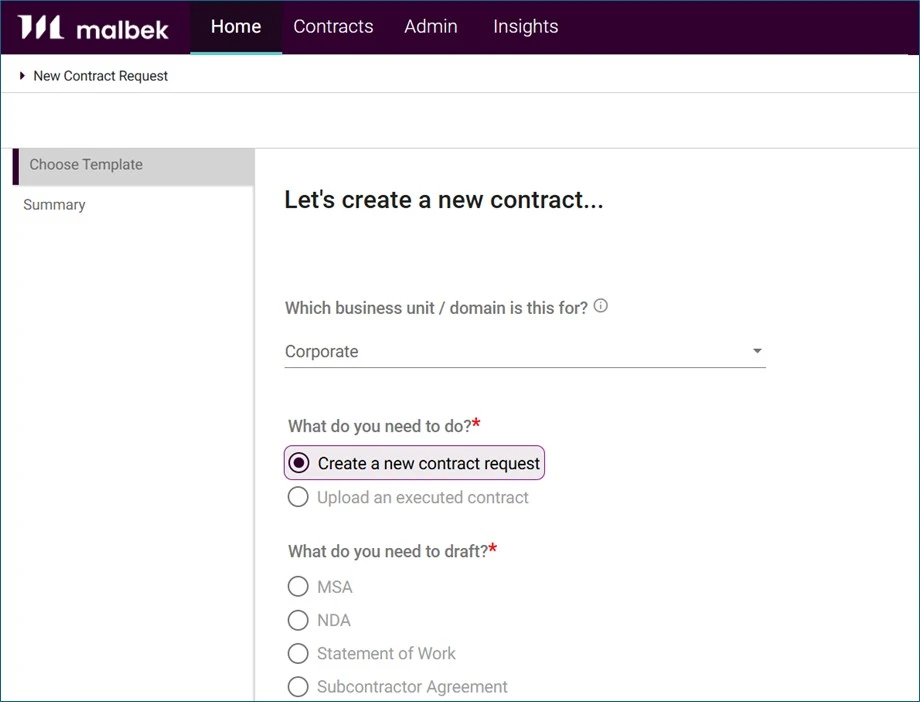4 Common Types of Contracts
In the not-so-distant past, business owners often confirmed a deal with a mere handshake. Among some prominent circles, this is still an acceptable way of doing business. Ideally, however, your organization employs the use of contracts to ensure you have the details in writing.
Contracts protect your business in the event of a dispute or litigation. If you manage business relationships with varying arrangements, contracts also provide a great resource for confirming the details. These are the most common ones you can expect to come across.
1. Non-Disclosure Agreement (NDA)
Companies often request or provide a Non-Disclosure Agreement (NDA) when they have sensitive or confidential information to disclose. Some companies will insist that all vendors sign one just in case. These documents are usually fairly straightforward and generally do not involve any negotiation. NDAs determine what is confidential information, discourage disclosure, and state what actions will be taken against violators.
Signing an NDA happens very early in the process of creating business relationships and has very few fields to fill in. In most cases, the persons signing these documents will only need to provide their name, the companies they work for, the date, and their signatures.

If you’d like to know more about NDAs, please visit our dedicated page for more information.
2. Master Services Agreement (MSA)
When two businesses enter into a formal relationship, a Master Services Agreement (MSA) details the terms of that agreement. When businesses have disputes, this is often the contract they review or that makes its way into court. This contract is known by several other names, such as Terms of Service.
The negotiation process for an MSA can often be long and tedious. It also contains a wealth of legal terms and industry jargon that might require the assistance of an attorney to properly navigate. Once negotiations are complete, it might still take a few drafts to properly iron everything out.

If you’d like to know more about MSAs, please visit our dedicated page for more information.
3. Order Form
Business owners also refer to order forms as Purchase Orders or Scope of Work. Whereas MSAs govern the entire future business relationships, Order Forms detail a specific, current transaction. As the name implies, they go into great detail about the items ordered, the expected delivery dates, and the cost. Sometimes, they can also include clauses related to canceling the order or making late payments.
Order Forms for products are generally more straightforward than those created for services. The more complex or artistic the service, the more complex the purchase order tends to be. Adding multiple deliverables and accompanying milestones can further complicate the process and lead to lengthy negotiations.
4. Buy-Side Contracts
This is a collective group of contracts used by procurement teams. They use them to source goods and services needed by the operations or production teams in an organization. These are sometimes used in place of sell-side contracts initiated by the persons providing the goods or services. Whether transactions involve buy-side contracts or sell-side contracts, they tend to involve third parties. This helps companies incorporate compliance, risk avoidance, and relationship management.
It’s also worth noting that buy-side contracts encompass a wide range of contracts. There tends to be a heavy negotiation process for buy-side contracts as the company is always interested in getting the best possible price. Buy-side contracts are also often used to re-negotiate existing terms.
Optimize Contracts with Malbek’s Contract Lifecycle Management Software
Are you looking for a way to reimagine the way your business creates, distributes, processes, and stores contracts? Malbek is the modern, AI-charged Contract Lifecycle Management for everyone, uniting all business users to manage contracts seamlessly. Request a demo to see how Malbek can empower your enterprise to do more with less.
FAQs – 4 Common Types of Contracts
What are the four common types of contracts in business?
The four common types of contracts include:
- Non-Disclosure Agreements (NDAs) – establish confidentiality protocols.
- Master Service Agreements (MSAs) – define overarching service terms.
- Order Forms or Purchase Orders – govern specific transactions.
- Buy-Side Contracts – regulate procurement and supplier relationships.
What is an NDA?
An NDA, or Non-Disclosure Agreement, is a legal instrument that ensures the confidentiality of proprietary information shared between parties.
It codifies the obligations of recipients regarding sensitive data and delineates consequences for unauthorized disclosure. NDAs are essential in settings where intellectual property, strategic plans, or personal data are exchanged under strict confidence.
What happens if you break an NDA?
Consequences of breaching a Non-Disclosure Agreement can include:
- Injunctions: Court-ordered cessation of further disclosures.
- Monetary damages: Compensation for losses incurred by the disclosing party.
- Legal action: Potential for litigation, including claims of breach of contract or misappropriation.
- Reputational harm: Loss of credibility and future business opportunities.
What is an MSA?
An MSA, or Master Service Agreement, is a comprehensive legal framework that governs an ongoing relationship between contracting entities. It predefines the terms and conditions under which future agreements—such as purchase orders or statements of work—will be executed.
By centralizing dispute resolution, payment terms, and liability allocations, MSAs foster continuity and reduce the friction of repetitive negotiations.
What agreements fall under the category of “buy-side contracts”?
Buy-side contracts encompass agreements through which organizations procure goods or services. These contracts often feature rigorous compliance, negotiation, and performance management protocols.
Buy-side contracts include:
- Procurement agreements
- Service-level agreements (SLAs)
- Licensing contracts
- Framework agreements
How does contract management software enhance the handling of different contract types?
Malbek CLM improves the management of NDAs, MSAs, purchase agreements, and procurement contracts through:
- Standardized Templates & Clause Libraries
Ensure consistency with pre-approved contract templates and reusable legal language across contract types. - AI‑Powered Contract Intelligence
Identify risky or non-standard clauses in real time to gather contract intelligence & support compliant negotiation strategies. - Automated Workflows
Automatically route contracts based on type, risk, or value—accelerating approvals and reducing bottlenecks. - eSignature & Audit Trails
Integrated tools like DocuSign enable secure, fast execution with full traceability. - Centralized Repository with Smart Search
Access any contract—NDA, MSA, or order form—instantly with metadata-driven search in your secure contract repository. - Milestone & Renewal Tracking
Stay ahead of expiration dates and renegotiation cycles, and other essential deadlines with automated alerts. - No-Code Integrations
Connect easily to Salesforce, SAP, Coupa, Slack and more—without IT involvement. You can find the full roster of our integrations here.







